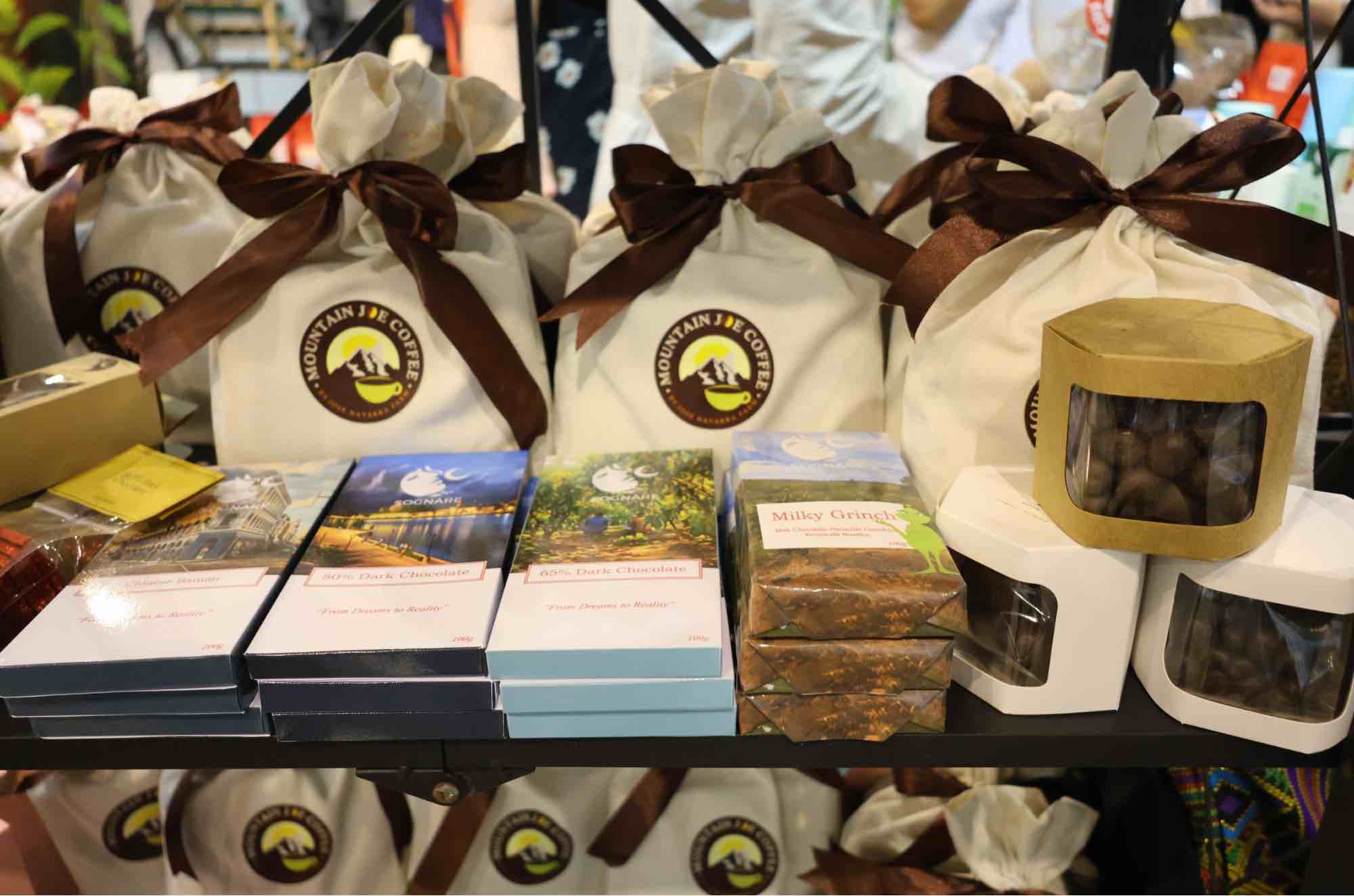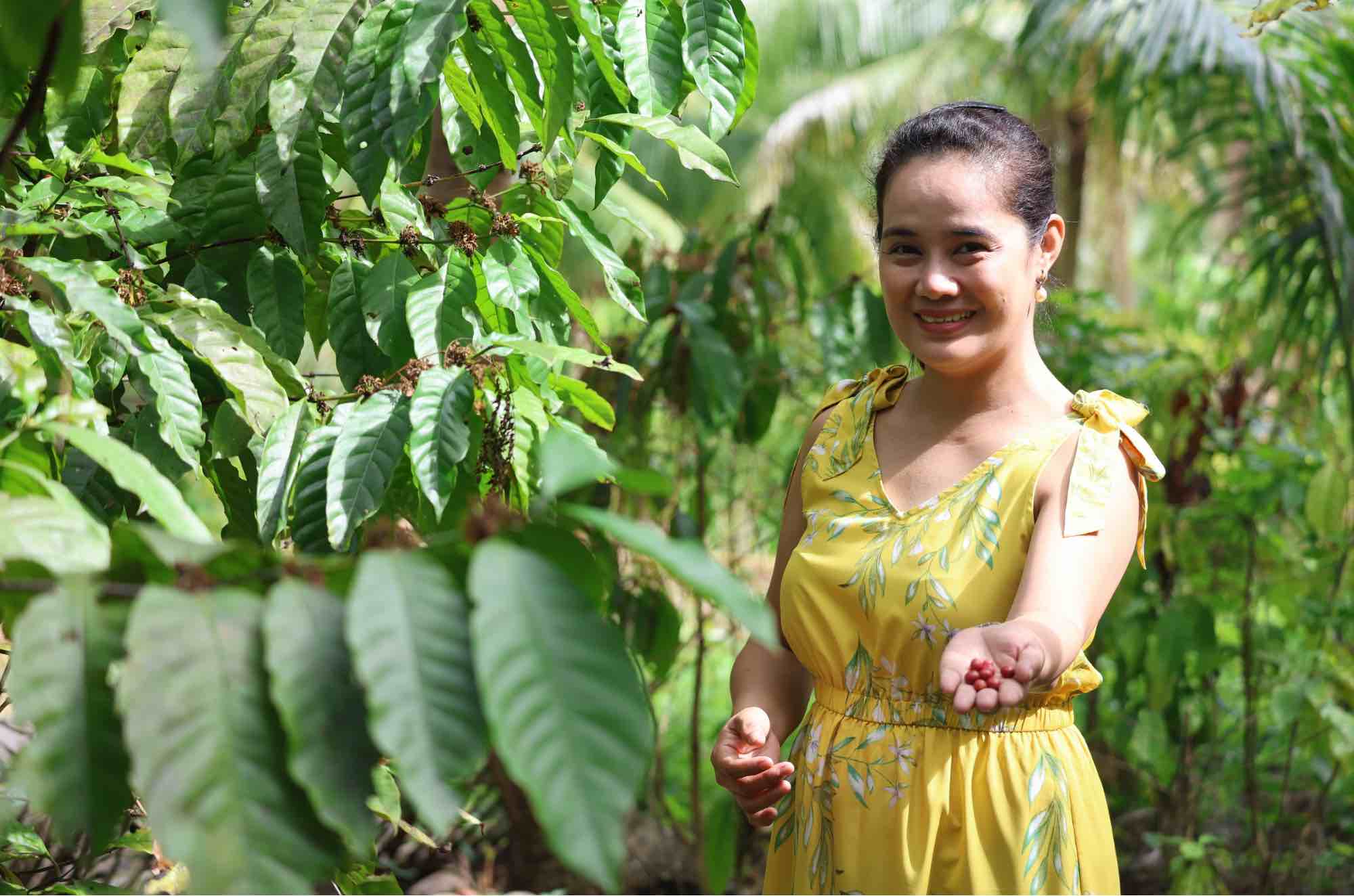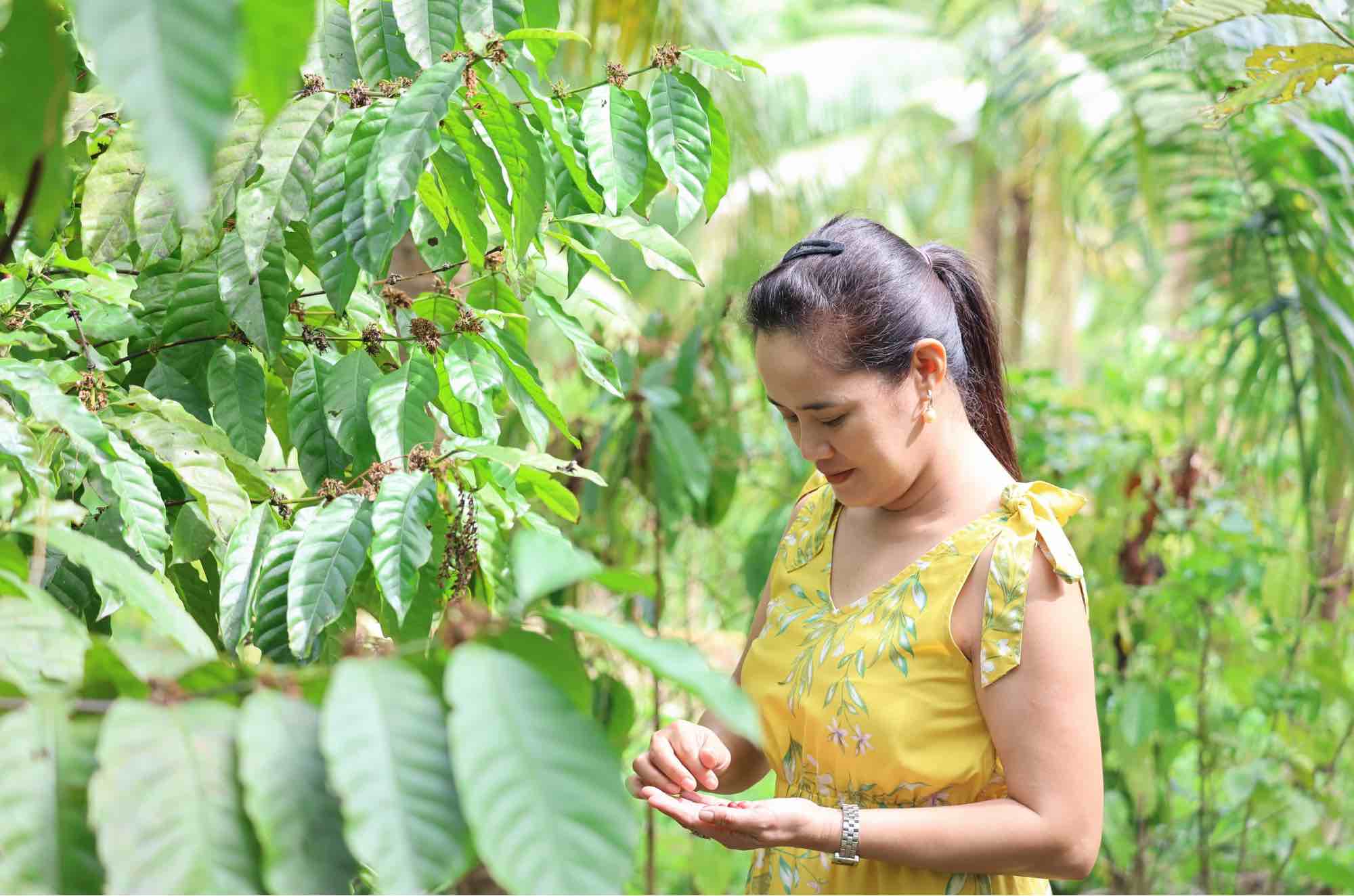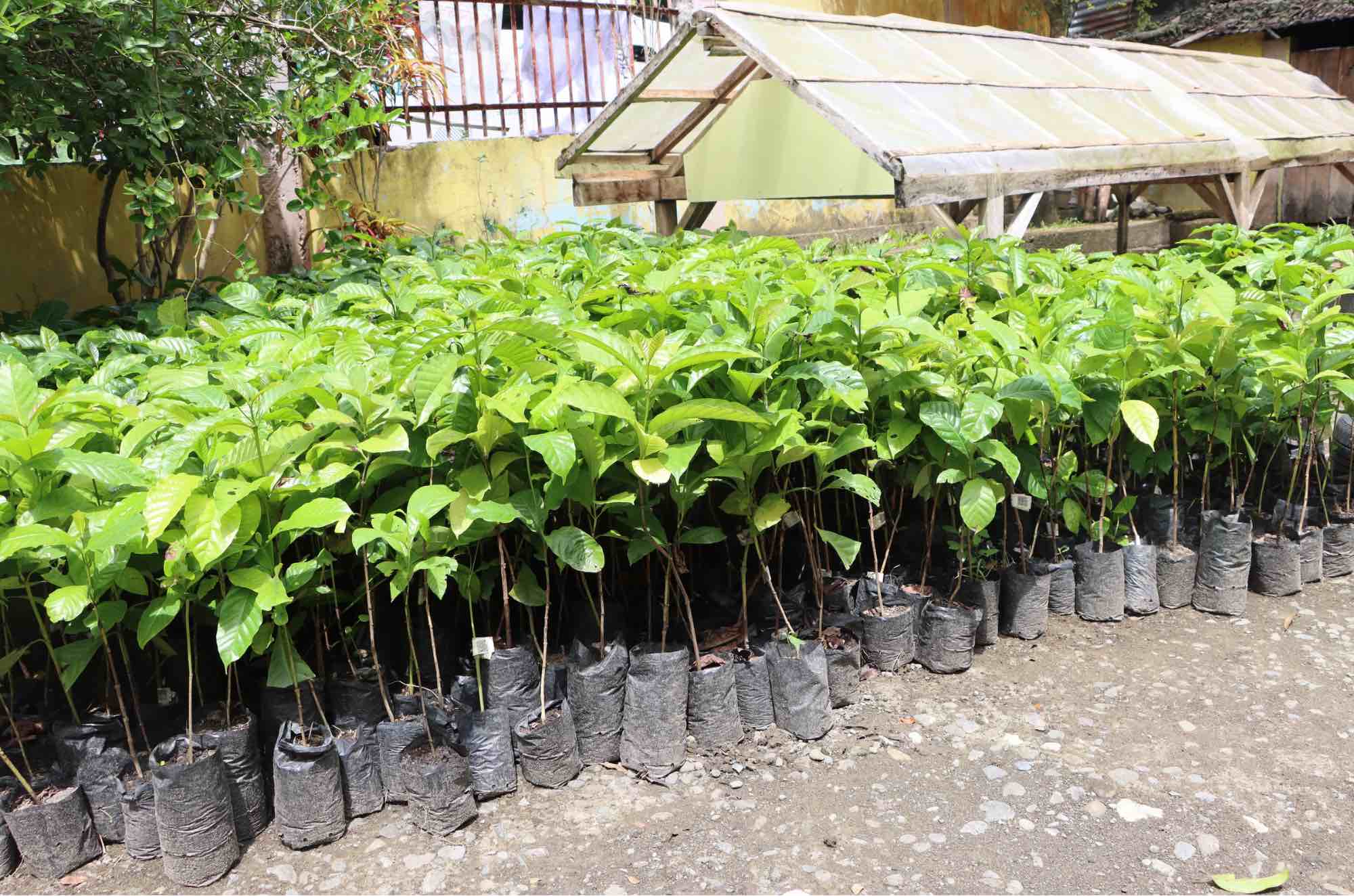A daughter’s quest to keep a coffee legacy alive
Posted by: RAFIS DA6 | Posted at: April 23, 2025
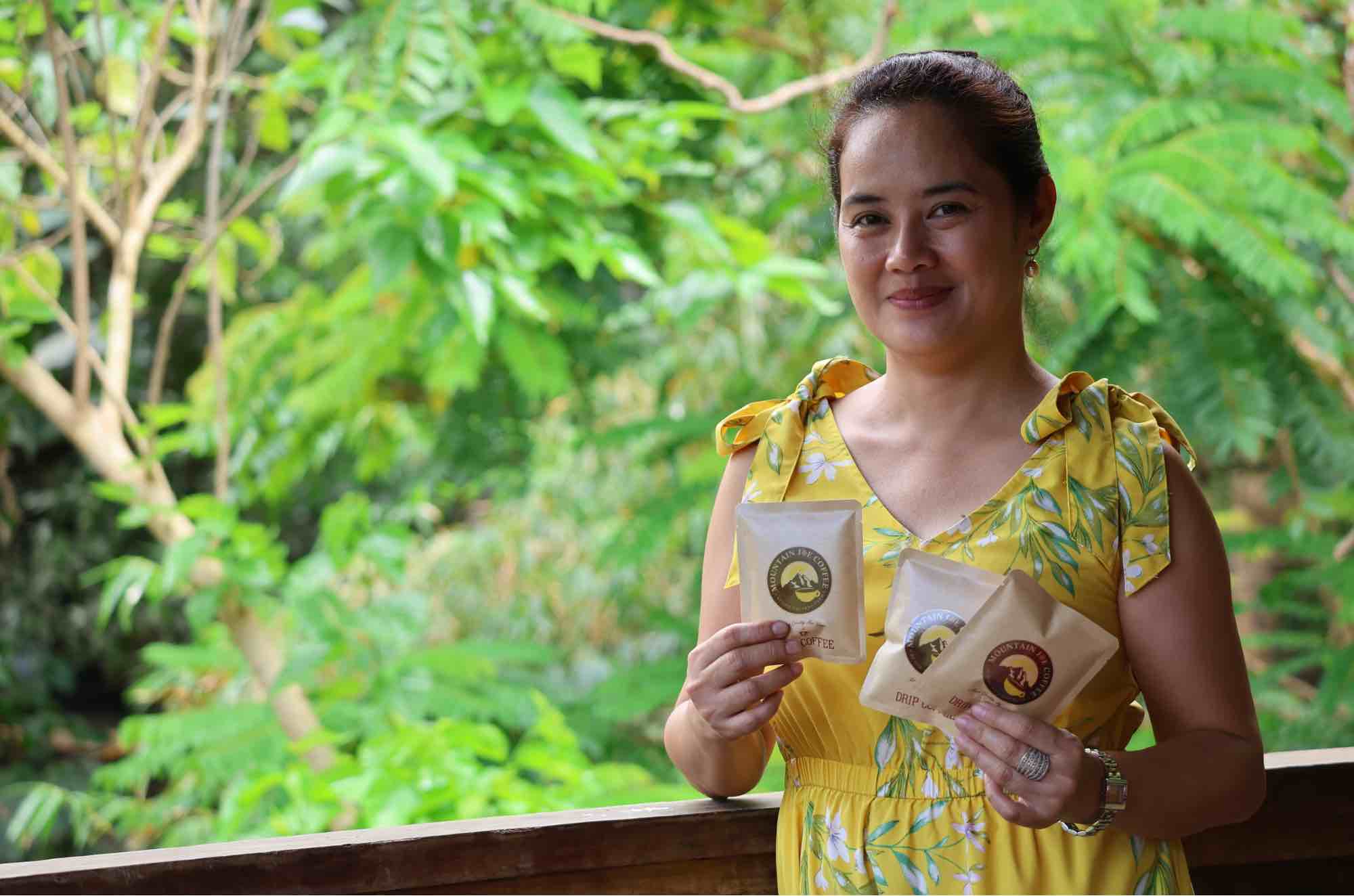
Jonelyn Navarra never imagined trading corporate meetings for muddy boots and sun-drenched fields. But when her father’s frail hands could no longer tend to their family’s farm in Burak, Maasin, Iloilo, she knew it was her turn to continue his life’s work.
What started as a promise to keep the farm alive soon became her mission—to prove that women have a place in agriculture. More than just growing coffee, Jonelyn transformed Mountain Joe Coffee Farm into a thriving hub of sustainable farming, entrepreneurship, and women empowerment.
Beyond coffee, she diversified the farm with high-value crops like Red Lady papaya and chili pepper, which serve as cash crops to sustain farm operations while waiting for the coffee harvest. Coconut trees provide long-term benefits, while lowland vegetables offer fresh food for her family and farm workers. Their poultry farm further ensures a steady source of income.
Jonelyn is not just cultivating the land—she is cultivating change.
INHERITING A LEGACY, BUILDING A FUTURE
The farm that Jonelyn now passionately manages is a legacy deeply rooted in her family’s history. It was built by the unwavering dedication of her father, Jose Navarra, who spent over 70 years cultivating coffee in the rolling hills of Burak. More than just a livelihood, the farm was a reflection of his life’s work—a place where he poured his heart and soul, nurturing every coffee tree with care and passing down generations of knowledge about the land.
For Jose, farming was not merely about harvesting coffee, it was about patience, resilience, and the quiet fulfillment of seeing the land bear fruit through years of hard work.
However, when Jose fell ill, the farm that once thrived under his hands slowly became neglected.
Without a successor to take over, the future of their coffee legacy became uncertain.
At the time, Jonelyn was at the peak of her corporate career as the Area Manager of HP Philippines. But while she excelled in the corporate world, she couldn’t ignore the longing in her father’s eyes each time he spoke about the farm. The thought of losing the land weighed heavily on her.
“After every dialysis session, I would drive my father back to the farm because I knew how much he loved it,” Jonelyn recalled. “One day, I asked for his permission to take over the farm. The moment he heard those words, his eyes lit up, and for the first time in a long while, I saw pure happiness on his face.”
In 2018, Jonelyn made a life-changing decision. Leaving behind the comforts of the corporate world, she stepped into an uncertain yet deeply meaningful journey—one that would not only revive her family’s coffee farm but also redefine her purpose as a woman in agriculture.
FROM CORPORATE LEADER TO FARMING PIONEER
Adjusting to the demands of farm life was a challenge for Jonelyn, a city girl who had once been shielded from the sun and the hard work of rural living. Yet, driven by determination and a deep sense of purpose, she fully embraced the world of farming—learning, step by step, how to cultivate coffee, manage soil health, and operate farm tools.
But for Jonelyn, returning to the farm was about more than just reviving her family’s legacy. It was about proving that she can take charge in farming—an industry long dominated by men—and showing that she, too, has the strength, skill, and resilience to lead.
CHAMPIONING WOMEN IN AGRICULTURE
Jonelyn did more than just restore her family’s farm—she championed women empowerment. Aware of the struggles many women faced, particularly housewives with little to no income, young women with limited opportunities, and even former rebels seeking a fresh start, she saw the farm as more than just a business. It became a catalyst of change.
Determined to help women gain financial independence, Jonelyn opened Mountain Joe Coffee Farm to them—not just as workers but as active participants in its growth. She encouraged housewives to maximize their own spaces by growing cash crops in their backyards, supplying them with vegetable seeds, and teaching them simple, sustainable farming techniques.
Beyond farming, Jonelyn recognized the important role of market access in sustaining livelihoods. She supported women and the elderly in her community by purchasing the produce grown from the seedlings she had distributed to them. This initiative not only provided them with a source of income but also instilled confidence in their abilities as small-scale entrepreneurs, empowering them to take an active role in their community’s economic growth.
“As a woman, I have always encouraged my fellow women to take on leadership roles and speak up. As a woman farmer, I make my own decisions whenever challenges arise on the farm. We must be firm and stand by what we believe can help our communities. To all women in agriculture—let’s start by supporting and uplifting one another.”
Through these initiatives, she transformed her farm into a thriving community where women like her, were not just contributors but decision-makers.
INNOVATING THE COFFEE BUSINESS
Despite having no prior experience in agribusiness and facing financial constraints, Jonelyn refused to let challenges discourage her. With only P2,000 in capital and no machinery at hand, she relied on sheer creativity and determination to build her brand. She and her farm workers worked together, finding innovative ways to process and package their coffee manually. In the absence of a proper sealing machine, Jonelyn even used her personal hair straightener iron to seal the coffee sachets— her unconventional but effective solution in packaging her drip coffee.
Determined to introduce her product to the market, she started small, launching her drip coffee gift sets, carefully designed with jute sacks and ribbons to capture the essence of her farm’s authenticity. To gain influence, she tapped into her personal network, asking her siblings to order from her and gift her coffee products to their friends and acquaintances.
Recognizing the need to expand her reach, Jonelyn actively participated in trade fairs, personally attending each event as the owner and face of Mountain Joe Coffee. She took every opportunity to engage with customers, sharing her story and educating buyers about what made her coffee special. With passion and confidence, she convinced people that her farm’s coffee was worth coming back for. The authenticity of her farm-to-cup process quickly made an impression. Buyers kept returning, drawn not only to the quality of the coffee but also to the inspiring story behind it.
When she started this business in 2023, Jonelyn set a goal of selling 3,000 units, uncertain of how the market would respond. However, through strategic marketing, resilience, and a belief in her vision, she far exceeded expectations—selling an astounding 10,000 sachet packs of her drip coffee.
Her success was not just about selling coffee, it was about proving that with determination, resourcefulness, and faith, even the smallest beginnings could lead to something great.
“I started with only P2,000 but with strategy, resilience, and faith, I grew my business. I believe that poverty is not a hindrance—it’s about having the courage to start,” Jonelyn shared.
SUSTAINABLE FARMING AND MARKET EXPANSION
When Jonelyn first took over the farm, she had no formal knowledge of coffee farming and was unsure where to begin. The vast plantation that her father had nurtured for decades now rested in her hands, and the weight of responsibility was overwhelming. Instead of rushing into decisions, she chose to learn the way her father did—by immersing herself in the land.
For two years, Jonelyn confined herself to the farm, shadowing her father, watching his every move, and listening intently as he shared his decades of wisdom.
Jonelyn adopted her father’s best practices, which became the foundation of Mountain Joe Coffee’s success. She practiced hand-picking only the ripest red coffee cherries to ensure the highest quality beans. She followed her father’s philosophy of roasting and packaging only when there were orders, guaranteeing that every batch was fresh. These meticulous methods set her coffee apart, attracting buyers who valued quality and authenticity.
“With so many coffee shops and traders in town, it’s tough to compete for the best coffee,” Jonelyn expressed. “That’s why I position myself differently—I never roast my green coffee unless there’s an order. This way, I can guarantee that every batch I supply is freshly roasted. I only process and pack my drip coffee when there’s a demand, ensuring quality and freshness for my customers.”
To deepen her knowledge and improve the farm’s productivity, Jonelyn enrolled in Organic Agriculture training module, where she learned sustainable techniques to enhance soil health and revitalize her coffee plantation. She also sought support from government agencies such as the Department of Agriculture’s High-Value Crops Development Program (DA-HVCDP) and
Agribusiness and Marketing Assistance Division (AMAD), as well as the Department of Trade and Industry (DTI), to strengthen her market linkages and expand her reach.
Through dedication, persistence, and the wisdom passed down by her father, Jonelyn transformed from a novice farmer into a skilled coffee producer. Her unwavering commitment to quality soon gained her a growing clientele, including major institutions and specialty coffee buyers in Luzon.
What started as a journey of uncertainty became a testament to perseverance, proving that with the right guidance, passion, and a deep respect for tradition, a farm could thrive—and so could the woman who chose to take it on.
TOWARDS A LEARNING SITE
Jonelyn envisions Mountain Joe Coffee Farm as more than just a thriving plantation—it is a future learning hub where women and aspiring farmers can gain hands-on experience in coffee cultivation and sustainable farming. She dreams of a place where people can immerse themselves in the realities of farm life, from handpicking coffee cherries to roasting and brewing their own cup, all while understanding the patience and skill required to produce quality coffee.
“We need to raise awareness about the challenges of farming so that people learn to appreciate and value the hard work of farmers,” she emphasized. She believes that many people enjoy coffee without truly understanding the effort behind every cup. By opening her farm to learners, she hopes to bridge this gap and instill a deeper appreciation for agriculture.
Jonelyn wants to give opportunities to women, especially those in rural communities, by teaching them not just farming techniques but also entrepreneurship. Her vision is already taking shape. She has started mentoring women in her community, guiding them in backyard farming and connecting them to potential buyers. She also encourages farm tourism, welcoming visitors who want to experience the entire coffee-making process—from farm to cup.
Jonelyn’s journey exemplifies resilience, innovation, and empowerment. From leaving a stable corporate career to embracing the challenges of farm life, she has redefined what it means to be a woman in agriculture. More than just growing coffee, Jonelyn Navarra is cultivating a movement— one that champions sustainability, uplifts communities, and inspires the next generation of farmers to lead with passion and purpose.###
Story by: Myleen S. Subang & Photos by : Myleen S. Subang & Cristine F. Lauresta


